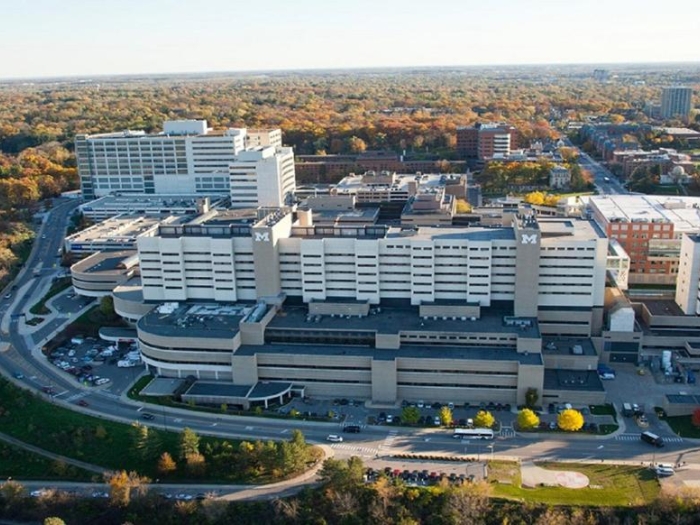5:00 PM
Author |

ANN ARBOR –Michigan Medicine reported projected positive fiscal year end results today for clinical operations, with an anticipated 2.9 percent ($226.5 million) operating margin on forecasted operating revenues of $7.9 billion.
The results reflect fiscal 2024 performance from University of Michigan Health, the organization’s clinical branch that includes 11 hospitals, hundreds of clinics statewide and the U-M Medical Group, UM Health-West and UM Health-Sparrow.
David C. Miller, M.D., M.P.H., presented the projected results for the fiscal year that ends June 30, along with the fiscal 2025 plan, to the U-M Board of Regents during its regular meeting Thursday.
“In fiscal year 2024, we maintained our focus on our BASE priorities – Belonging & Inclusion, Access, Safety & Quality, and Experience for our patients and team members – while also building the foundations for a statewide network that supports integrated, cost effective, and high quality health care services for the patients and communities we serve across Michigan,” said Miller, who is president of University of Michigan Health and executive vice dean for clinical affairs.
Fiscal 2024’s financial performance allows for continual investments in faculty and staff and capital improvements including the construction of a new hospital, called The D. Dan and Betty Kahn Health Care Pavilion, a new Ypsilanti Health Center and an innovative program providing patients with hospital level care at home.
The new 12-story pavilion will house 264 private rooms capable of converting to intensive care, a state of the art neurological and neurosurgical center, high-level specialty care services for cardiovascular and thoracic patients and advanced imaging services. The 690,000-gross-square-foot building is expected to open in fall 2025.
Opening later this year is the new Ypsilanti Health Center, located at 300 W. Michigan Avenue in downtown Ypsilanti. The center will have 50,000 square feet on three different floors, including family medicine, geriatrics, urology, behavioral health, cardiology, dermatology, ophthalmology, endocrinology and women’s health, among others. Diagnostic imaging services will also be provided at the new facility.
Marschall S. Runge, M.D., Ph.D., expressed gratitude to Michigan Medicine employees who made the solid financial performance possible.
“The work of our collective teams allows us to provide life changing, patient centered care every day. We are grateful for their dedication,” said Runge, who is CEO of Michigan Medicine, dean of the U-M Medical School and executive vice president for medical affairs for the University of Michigan.
“The skills, expertise and commitment of our employees will allow us to manage nearly 90,000 discharges and more than 4 million outpatient encounters in FY 25 at over 200 care locations.”
The Regents also approved a budget that sets financial performance targets for Michigan Medicine’s clinical operations for the fiscal year that begins July 1. The fiscal year 2025 plan aims for a 1.7 percent operating margin.
Miller stressed that U-M Health will “strengthen its clinical enterprise for both today and tomorrow by continuing to invest in our teams, improving access and experience at our academic medical center, promoting and supporting continued innovation, and advancing clinical integration across our statewide network, with an emphasis on providing the right care in the right place at the right time,” he said.
“As we grow, maintaining the highest quality of care across UM Health will always be our top priority.
About Michigan Medicine: At Michigan Medicine, we advance health to serve Michigan and the world. We pursue excellence every day in our 11 hospitals and hundreds of clinics statewide, as well as educate the next generation of physicians, health professionals and scientists in our U-M Medical School.
Michigan Medicine includes the U-M Medical School. And University of Michigan Health, which includes the C.S. Mott Children’s Hospital, Von Voigtlander Women’s Hospital, University Hospital, the Frankel Cardiovascular Center, Kellogg Eye Center, University of Michigan Health-West, University of Michigan-Sparrow and the Rogel Cancer Center. The U-M Medical School is one of the nation’s biomedical research powerhouses, with total research funding of more than $777 million.
More information is available at www.michiganmedicine.org
###

Department of Communication at Michigan Medicine

President, U-M Health
Executive Vice Dean for Clinical Affairs, U-M Medical School
Professor of Urology



